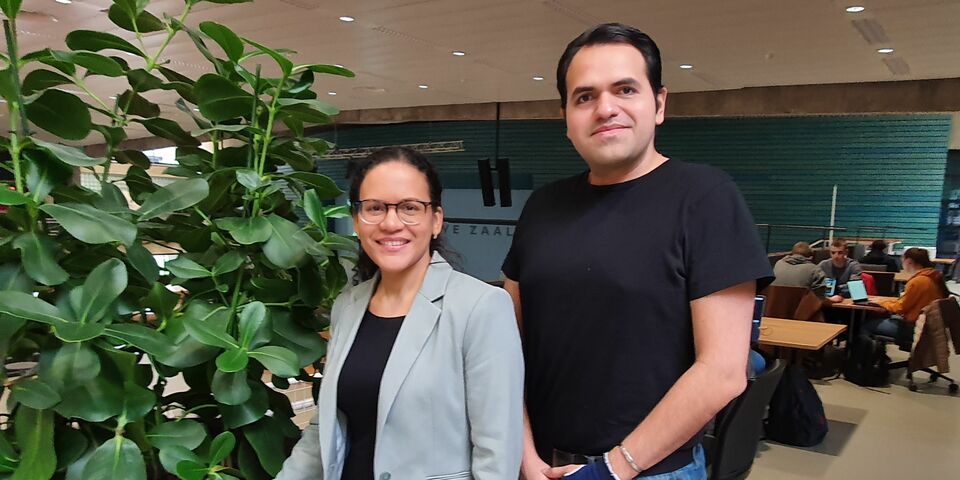Engineers in education
During the next two years, 150 people who already have a job in the engineering industry will be deployed as teachers. Engineers will work as so-called hybrid teachers at several educational institutions, upon the initiative of Brainport. The first two teachers already started at TU/e in February, at innoSpace and Industrial Engineering.
Ignacio Vazquez Rodarte (31) has been working as a senior data scientist at DAF Trucks, via high-tech employment agency TMC, for several years now. “My work mostly consists of writing codes, and I missed using my people skills,” Ignacio says.
When TMC posed the question six months ago who would like to work as a hybrid teacher, the data scientist from Mexico didn’t need to think long - just like 90 of his 600 colleagues. “Together with TU/e, we went looking for a suitable assignment, and now I coach students at TU/e innovation Space one morning a week. The students work on their Bachelor's graduation project in multidisciplinary teams.”
Heidi Romero (41), business process management architect at ASML, is a TU/e alumnus, just like Vazquez Rodarte. Her academic heart didn’t stop beating when she decided to pursue a career in the business industry. “Because of this project, I work as a coach and instructor at Industrial Engineering for one day a week. Together with three others, I supervise 150 students during their practical assignment ‘Business process simulation.’”
Keen interest
Brainport has two matchers who bring interested engineers and school and institutions together. People have shown a keen interest. After a simple call via intranet at ASML, 130 of Romero’s over 20,000 colleagues signed up as well. The most often heard motivations are ‘to develop yourself’ and ‘to help in society.’
TU/e’s initial investment in the project was the participation of ten hybrid teachers. Chantal Brans, policy officer at General Affairs, thinks the number will become much higher. “There is a keen interest, both from TU/e and the engineers. Romero and Vazquez Rodarte started already, and I know that the department of Electrical Engineering already submitted a request for twenty people to assist with the supervision during work-lectures in the evening hours at the start of next academic year. They already have at least seven candidates for that, and it didn’t cost them any effort to recruit them,” Brans says.
In love
Participants will not have any regrets, Romero and Vazquez Rodarte expect. They themselves are very enthusiastic. “It gives me so much energy, my colleagues at ASML even ask me what’s the matter,” says Romero, who is from the Dominican Republic. “They ask me if I’m in love.”
Vazquez Rodarte’s colleagues at DAF are also surprised to see the energy he brings along to work on Friday afternoon. “I come to work after I’ve been at innoSpace in the morning where I work with other Spanish-speaking coaches. It’s so refreshing to provide international students with feedback and tips.”
Both greatly enjoy the appreciation they receive from the students. Vazquez Rodarte explains: “I do this on a voluntary basis and I’m highly motivated. Students feel that. In addition, I’m their only coach with experience in the business industry. They ask me how we at DAF solve the problems they run into, and how the decisions are taken. They are interested in my experience.”
Pilot
The appointment of hybrid teachers is a two-year pilot. Participants remain in their employer’s service (to be precise: ASML, DAF, TMC, or the employers’ organization in the technology industry FME), and TU/e will pay a social tariff, which was decided upon in consultation. The money comes from the student loan resources, Brans says.
She hopes that after the pilot is over, a structure will be developed where technicians who feel passionate about education can turn to. “So that it won’t depend any longer on a chance network whether someone is welcome here.”


Discussion